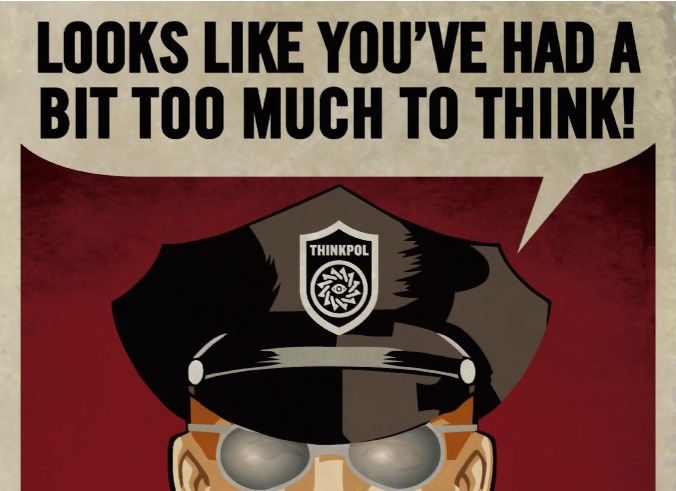
Political correctness fosters groupthink and drives cultural conformity. It silences open discussion and destroys real diversity. I used to think the thin-skinned thought police couldn’t get more oppressive but I was wrong. I guess the more we give in to their bullying tactics, the more emboldened they become.
Last year, New York Times columnist Jim Stewart talked about how surprised he was that not one high-profile CEO was willing to go on the record about being gay for a column he was writing about former BP CEO John Browne’s book, “The Glass Closet: Why Coming Out Is Good for Business.”
That prompted me to write a column on whether or not gay CEOs should come out. My position on the subject – which always comes about organically as I research and write, incidentally – turned out to be fairly nuanced.
On the one hand, I reasoned, nobody should feel compelled to live a miserable and desperate double life to conceal his sexuality. That’s got to be a horribly tortured way to live.
On the flipside, there’s also nothing wrong with business leaders wanting to keep certain things personal, whether it’s their choice of partner, medical conditions, political views, crazy uncles, fetishes, bizarre hobbies, whatever.
After all, there are stigmas attached to some of this stuff. And while it would be great to live in utopia where anything goes, that’s not reality. So whether CEOs choose to be open or keep their personal lives private, I wouldn’t fault them one way or the other.
After all, business is about business. We should all feel comfortable to show up for a company event with a spouse of either gender, but that doesn’t mean we should necessarily feel the need to get up on a soapbox about it. That’s a personal decision and CEOs shouldn’t feel pressured either way.
I used Apple CEO Tim Cook – who, at the time, hadn’t yet come out – as an example. I essentially praised him for making that choice. Months later he decided to come out. Again, I praise him for making that choice.
In the end (of the column) I commended Stewart and Browne for encouraging executives to come out, closing with “Society is a work in progress and [Browne] and Stewart are both helping us evolve.”
As you might expect, the piece sparked a significant number of interesting comments, but none that I would characterize as being overly critical, one way or another.
I should have known I’d never get off that easy.
A full year later I get tweet bombed by a human rights advocate who accuses me of lacing the article with “hateful microaggressions” that he called “a form of discrimination,” both of which “arouse hate.”
@Hennesseyedit @SteveTobak For ex, less chance this article would be laced with so many hateful microaggressions. I know, I’m sooo dramatic!
— Tim Giordano (@timothygiordano) August 13, 2015
Of a 1,000ish word article, he drew those conclusions based on my use of two, count them two words, “drama” and “uncomfortable,” neither of which was used in any kind of derogatory, let alone discriminatory or hate-invoking context.
What’s ironic is that I’ve probably been pro-gay since before the twit … I mean tweeter was born. And when my editor called him on his use of the word “hateful,” he responded that microaggressions come out subconsciously.
And there you have it. First there was the word police trying to shut down what we say. Then came the thought police trying to silence logical debate. Now we have the emotions police telling us our buried feelings are offensive and hateful. I’m not sure how it gets worse from there but I’m sure they’ll find a way.
More on this later. Lots more.
(Thought Police poster by Libertymaniacs)